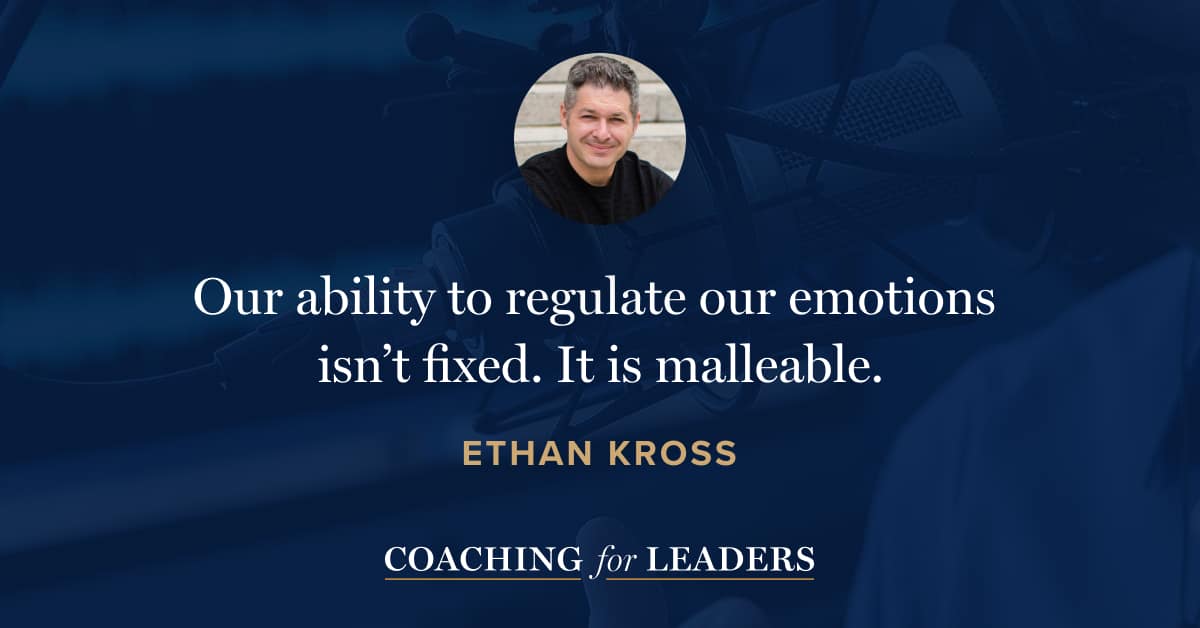Ethan Kross: Shift
Ethan Kross is the author of the national bestseller Chatter and one of the world’s leading experts on emotion regulation. An award-winning professor in the University of Michigan’s top-ranked Psychology Department and its Ross School of Business, he is the Director of the Emotion and Self-Control Laboratory. He's the author of the new book, Shift: Managing Your Emotions–So They Don't Manage You*.
Being a leader means that our emotions get triggered, often many times a day. While none of us can avoid those triggers, how we respond to them can make all the difference. In this conversation, Ethan and I explore his research on how to better manage our emotions.
Key Points
- We often assume that approaching emotions is universally good and avoiding emotions is universally bad. Reality is much more nuanced.
- We can strategically use our senses to modulate our feelings.
- Music is a simple and powerful way to manage emotions proactively. Use playlists that align with the mood you wish to create.
- Using distancing language when talking to yourself (i.e. saying “you” instead of “I”) can help you regulate.
- Time shifting may help regulate your emotions. Ask yourself, how will I feel about this in a week? A month? A year?
- Different tools work for different people at different times. Experiment to help you determine what works best for you.
Resources Mentioned
- Shift: Managing Your Emotions–So They Don't Manage You by Ethan Kross
Interview Notes
Download my interview notes in PDF format (free membership required).
Related Episodes
- How to Find Helpful Advisors, with Ethan Kross (episode 516)
- How to Grow From Your Errors, with Amy Edmondson (episode 663)
- How to Handle High-Pressure Situations, with Dan Dworkis (episode 701)
Discover More
Activate your free membership for full access to the entire library of interviews since 2011, searchable by topic. To accelerate your learning, uncover more inside Coaching for Leaders Plus.





